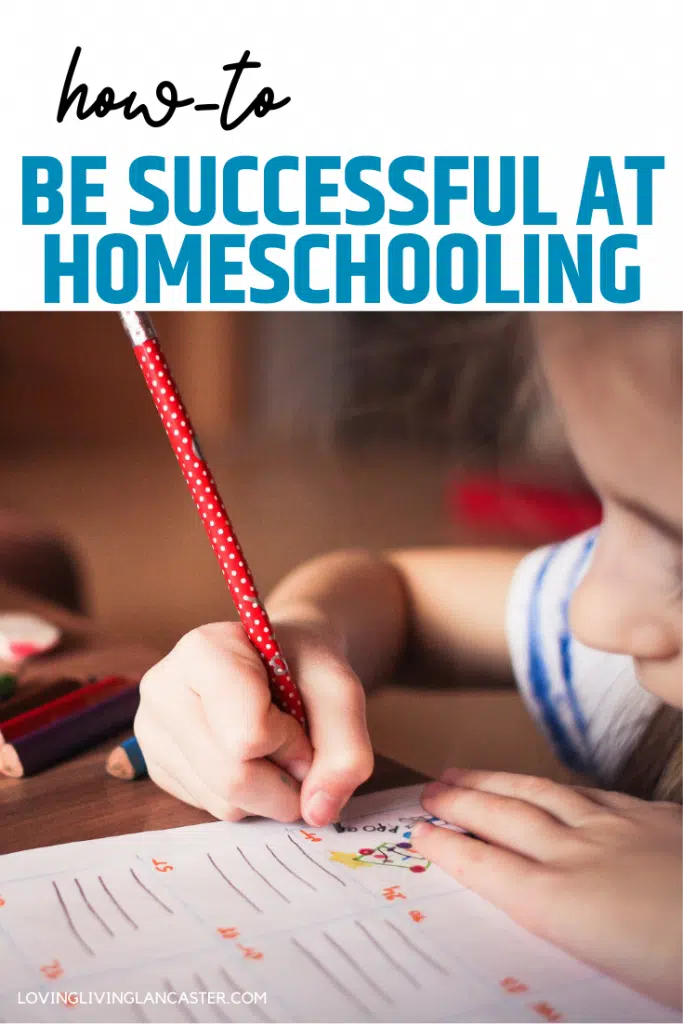8 Strategies for Successful Homeschooling
Last Updated on January 22, 2024 by Allison Lancaster

Your children’s education is incredibly important, and there are many considerations that go into making a decision to homeschool your kids. After all, you want to give your kids the best start in life that you can.
Homeschooling includes so many things in addition to academics, such as physical skills, social skills, field trips, sports, music, and much more.
How can you create a well-rounded homeschool program that gives your children the most benefits that you can?
These strategies will help you create a successful homeschooling program for your children:

Research homeschooling.
Read everything you can about the different curricula that are available. Talk to other homeschooling parents, as well as their home schooled kids, to learn from their experience.
Find out the homeschooling requirements for your area.
This varies from location to location. For example, in the United States, each state sets their own requirements for homeschooling. Some states require attendance records, as well as reports and standardized tests, while other states require little to no records.
Join a local homeschooling group.
One of the best places to find out information about homeschooling is from homeschoolers themselves. You will be able to ask them questions, let them review your practices, and show you what works for them.
Another bonus of a homeschool group is the ability to have age-appropriate activities are available. Many also co-op learning, and other parents make subjects available to their kids that they don’t have expertise in, such as a foreign language or playing a musical instrument. Some homeschooling groups have arranged all sorts of things for the kids, including field trips, sports teams, and even competitions.

Decide on the curriculum.
There are various places online where you can buy a curriculum to use at home. These will vary from traditional textbooks and workbooks for reading, writing, and arithmetic, to more custom curriculum that is aimed more at your own child’s interests.
Create your own space for homeschooling.
Where are you going to be schooling your children? Will you be using the kitchen table, or do you have a spare room available to set up for homeschooling? Do you need a blackboard or a desk? What about a computer or space for storage?
Keep in mind that kids need very little to learn, especially in the beginning. Many families have successfully homeschooled their children from kindergarten through high school at the kitchen table. Don’t worry if you don’t have the space to create a classroom area.
Set specific goals.
It is important when homeschooling to set specific goals. This is because you will likely be moving at a different pace to those in traditional schooling. Remember that each child will learn on their own pace, and if you stay steady in your goals, your child WILL LEARN.
Keep in mind that your child didn’t “read the books” when it came to the age they should crawl, roll over, walk, and even become potty trained. The same will be for their education. Don’t worry about what other kids around them are doing. Unless you observe serious issues such as possible dyslexia or other learning issues, your child will learn algebra when they are ready. I personally believe that teaching them life skills such as how to budget, how to garden, etc. are just as, if not more important than things like algebra!
Create your own schedule.
Once you’ve thought about goals for your child, it’s time to create a schedule that supports those goals. Make a plan of what subjects you are planning to do on each day, and whether there will be any field trips. Also, include time in your children’s schedule for physical activity, socializing, and making friends.
Having said that, remember that homeschooling doesn’t have to be set to Monday through Friday 8 AM to 3 PM to be successful. Many families have Dad do some teaching at night after work, or do field trips on Sunday and take the following Wednesday off.
Cuddling up on the couch and reading books together all day long is also learning. Keep that in mind when setting your schedule that flexibility will be a huge key to success. For us, we do school in the morning and then let the kids play in the afternoons (remember, ours are 4 and 2 currently so there isn’t much formal homeschooling happening…yet!)

Remember that homeschooling doesn’t equal isolated.
If you take your child to the grocery store, and they interact with the cashier, that IS socialization. While having their own friends, learning how to behave around all ages, not just kids their age is important in their growth.
If you are concerned about their socialization, try volunteering as a family at your local food bank. Your older children may be able to volunteer at the local library as a page, or even at an animal shelter helping to take care of animals.
Clubs such as 4H, and others also provide means for a child to interact with others on a regular basis. Just remember to NOT over schedule them or yourself, or you risk burnout.
With a bit of patience, a pinch of planning, and loads of flexibility and love for your child, you can be successful at homeschooling. Enjoy the journey!












